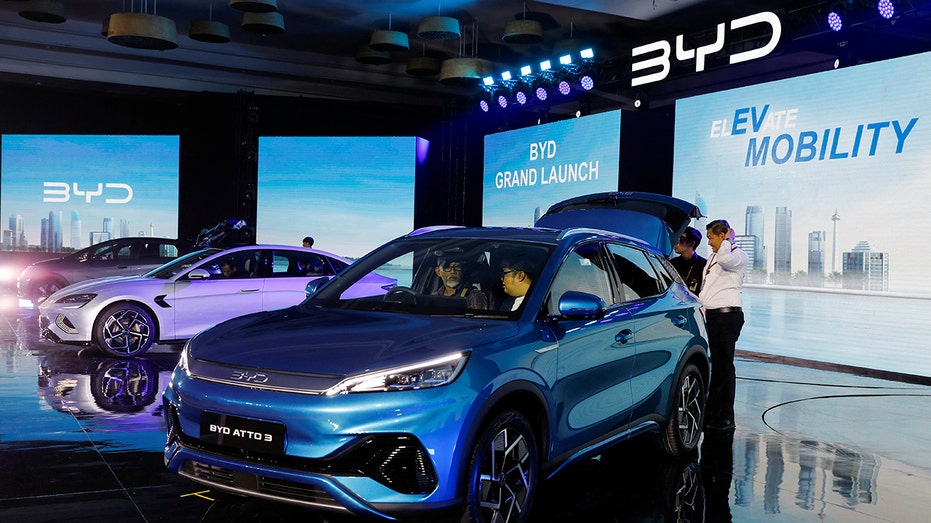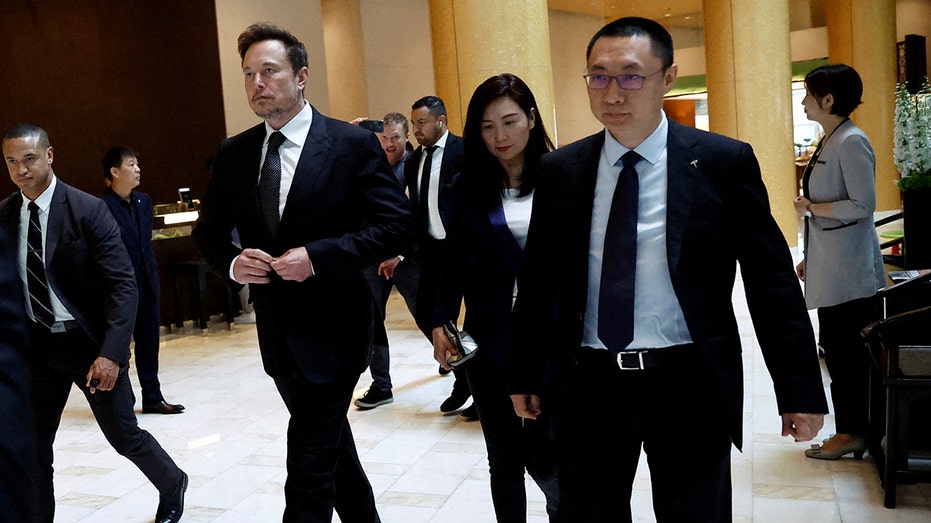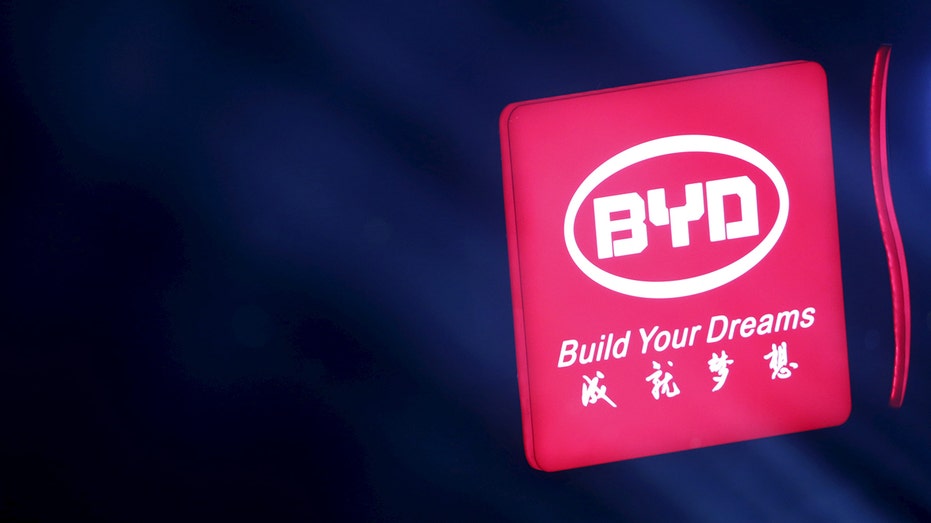Elon Musk says Chinese EV companies will 'demolish' competition without tariffs
Musk's comments come after China's BYD beat Tesla as the top-selling EV company last quarter
Elon Musk's vision for Tesla makes the stock a 'big buy': David Nicholas
Nicholas Wealth Management president and founder reveals which Big Tech stocks are set to explode on 'Varney & Co.'
Tesla CEO Elon Musk on Wednesday warned that Chinese automakers will "demolish" their global competition without tariffs or other trade barriers.
His comments come after Chinese electric car company BYD, which makes cheaper cars and is backed by Berkshire-Hathaway, surpassed Tesla as the top-selling EV company last quarter.
Chinese automakers were the "most competitive" and "will have significant success outside of China, depending on what kind of tariffs or trade barriers are established," Musk told investors on a post-earnings call on Wednesday.
"If there are no trade barriers established, they will pretty much demolish most other car companies in the world," he said. "They're extremely good."
CHINESE COMPANY POISED TO OVERTAKE TESLA AS BIGGEST EV MAKER ON PATH TO GLOBAL LEADERSHIP: REPORT

Visitors inspect China's BYD electric vehicles during its launch ceremony in Jakarta, Indonesia, on Jan. 18. (REUTERS/Willy Kurniawan / Reuters Photos)
Asked about Musk's comments, the Chinese foreign ministry said at a regular briefing on Thursday that it was unaware of the reports but advocated "maintaining a fair, just and open business environment".
China has made an aggressive push to achieve dominance in the global EV market.
The communist nation wants to have its two biggest EV makers generate 10% of their sales overseas by 2025 but has not indicated which companies that would include — though, analysts believe BYD must be one of those two due to production and sales volume, The South China Morning Post reported.
BYD's sales were bolstered by discounting programs in Europe aimed at increasing the EV maker's presence in foreign markets. BYD dropped the price by about 8% on its Han-branded sedans, with a much smaller discount on its Dynasty series of pure and hybrid models.
BIDEN'S EV PUSH IS AN ‘ABSOLUTE’ AND ‘DANGEROUS’ BUST: MARC MORANO

Tesla CEO Elon Musk leaves a hotel in Beijing on May 31, 2023. (REUTERS/Tingshu Wang/File Photo / Reuters Photos)
European Commission President Ursula von der Leyen has said that the price for vehicles remained "artificially low" thanks to state subsidies.
Tesla slashed prices for its EV models last year as Musk has sought to make his cars more affordable for customers who face steep loan costs. But the company's margins have suffered and investors have voiced concerns. On Wednesday, Musk admitted that Tesla was reaching "the natural limit of cost down" with its existing products.
The company also suffered a few significant setbacks last year, including a recall of just over 2 million vehicles in the U.S. fitted with autopilot driver assistance to install new safeguards.
Tesla plans to start producing a cheaper, mass-market compact crossover codenamed "Redwood" in mid-2025 to compete with inexpensive rivals, Reuters reported on Tuesday. Musk on Wednesday confirmed that Tesla expects to start production of its next-generation EV at its Texas factory in the second half of 2025.
TOYOTA SUBSIDIARY SHUTS DOWN PRODUCTION AFTER ADMITTING TO DECADES OF SAFETY TEST ‘IRREGULARITIES’

The logo of BYD is displayed at BYD Dreamcast conference in Beijing on April 11, 2016. (REUTERS/Kim Kyung-Hoon / Reuters Photos)
Europe remains the primary target for rising Chinese EV manufacturers. BYD plans to build a new factory in Hungary and launch sales for three more models on the continent, with plans to sell 800,000 annually in Europe alone by 2030, The Guardian reported.
China faces a more difficult market in the U.S., where tariffs and trade restrictions remain in place and brand visibility is low.
The U.S. presidential election is also on the horizon, with candidates in both parties talking tough on competition with China. President Biden has said China aims to dominate the EV market and that he "won't let that happen."
Former President Donald Trump, the front-runner for the Republican nomination to challenge Biden, has pledged to implement new trade barriers if elected. Trump has called for a universal 10% tariff on all U.S. imports and to revoke China's most-favored-nation trade status.
GET FOX BUSINESS ON THE GO BY CLICKING HERE
Musk on Wednesday said there was "no obvious opportunity" to partner with Chinese competitors, but that Tesla is open to allowing them to use its charging network and licensing other technologies, including self-driving.
Europe, meanwhile, is considering whether to implement new tariffs on Chinese EV imports to protect European Union manufacturers. The European Commission launched an investigation last year into whether tariffs are necessary to combat Chinese products that are artificially cheaper thanks to state subsidies.
FOX Business' Peter Aitken and Reuters contributed to this report.





















